10 Best Herbal Decoctions For Brain Fog
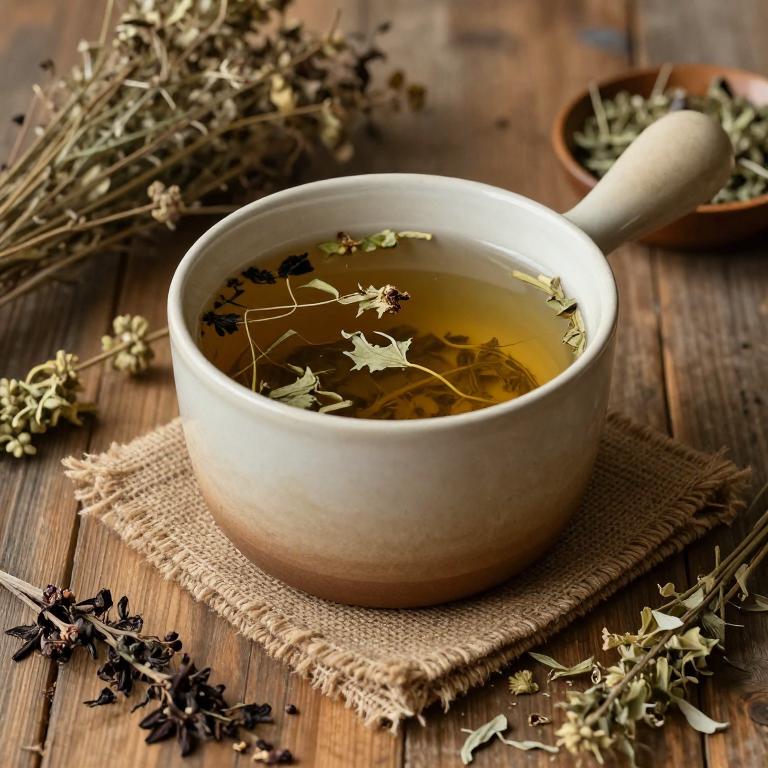
Herbal decoctions have been traditionally used to alleviate brain fog by promoting mental clarity and cognitive function.
Common herbs such as ginkgo biloba, ashwagandha, and turmeric are often included in these decoctions due to their antioxidant and anti-inflammatory properties. These herbs are typically simmered in water for an extended period to extract their active compounds, which are then consumed as a tea or supplement. The use of herbal decoctions can support overall brain health by improving circulation and reducing oxidative stress.
However, it is important to consult a healthcare professional before starting any herbal regimen, especially for individuals with pre-existing medical conditions or those taking medications.
Table of Contents
- 1. Ginkgo (Ginkgo biloba)
- 2. Panax ginseng (Panax ginseng)
- 3. Golden root (Rhodiola rosea)
- 4. Turmeric (Curcuma longa)
- 5. Salvia (Salvia officinalis)
- 6. Bacopa (Bacopa monnieri)
- 7. Chaste tree (Vitex agnus-castus)
- 8. Stinging nettle (Urtica dioica)
- 9. Ashwagandha (Withania somnifera)
- 10. Echinacea (Echinacea purpurea)
1. Ginkgo (Ginkgo biloba)

Ginkgo biloba, an ancient tree known for its unique fan-shaped leaves, has been widely used in traditional medicine for centuries.
Herbal decoctions made from its leaves are believed to enhance cognitive function and alleviate symptoms of brain fog, a condition characterized by mental cloudiness and difficulty concentrating. The active compounds in ginkgo biloba, such as flavonoids and terpenoids, are thought to improve blood circulation and protect brain cells from oxidative stress. These decoctions are often prepared by simmering the dried leaves in water for several hours to extract their beneficial properties.
While some studies suggest potential benefits for memory and mental clarity, more research is needed to fully understand their efficacy and safety for treating brain fog.
2. Panax ginseng (Panax ginseng)
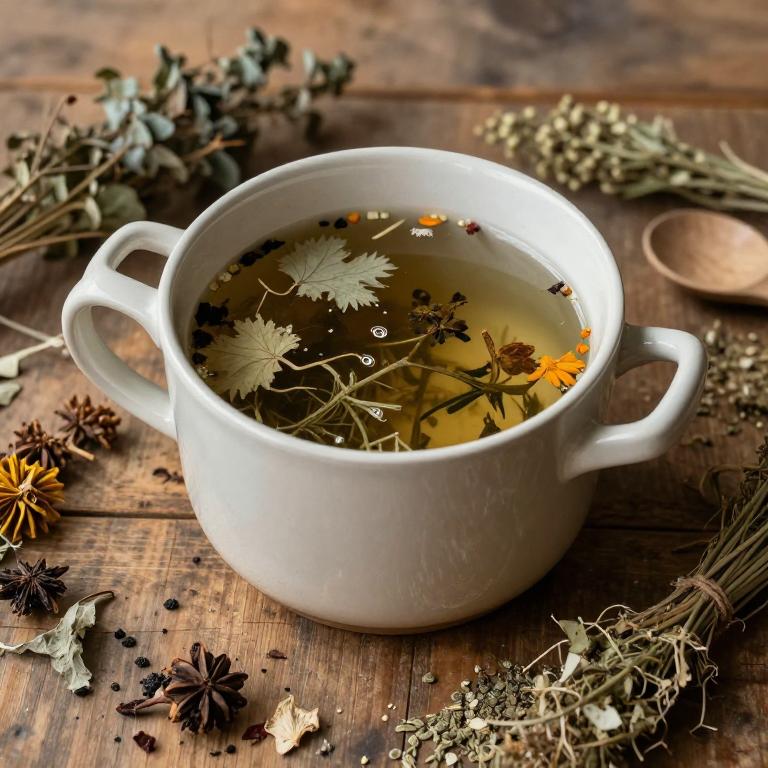
Panax ginseng, a popular adaptogenic herb, is often used in herbal decoctions to support cognitive function and alleviate brain fog.
These decoctions typically involve simmering the root in water for extended periods to extract its active compounds, such as ginsenosides, which are believed to enhance mental clarity and focus. Studies suggest that Panax ginseng may improve memory, reduce mental fatigue, and boost overall brain function by promoting neuroprotective effects. The use of Panax ginseng decoctions is common in traditional Chinese medicine for its ability to balance energy levels and support mental alertness.
However, it is important to consult a healthcare professional before using these decoctions, especially for individuals with existing health conditions or those taking other medications.
3. Golden root (Rhodiola rosea)
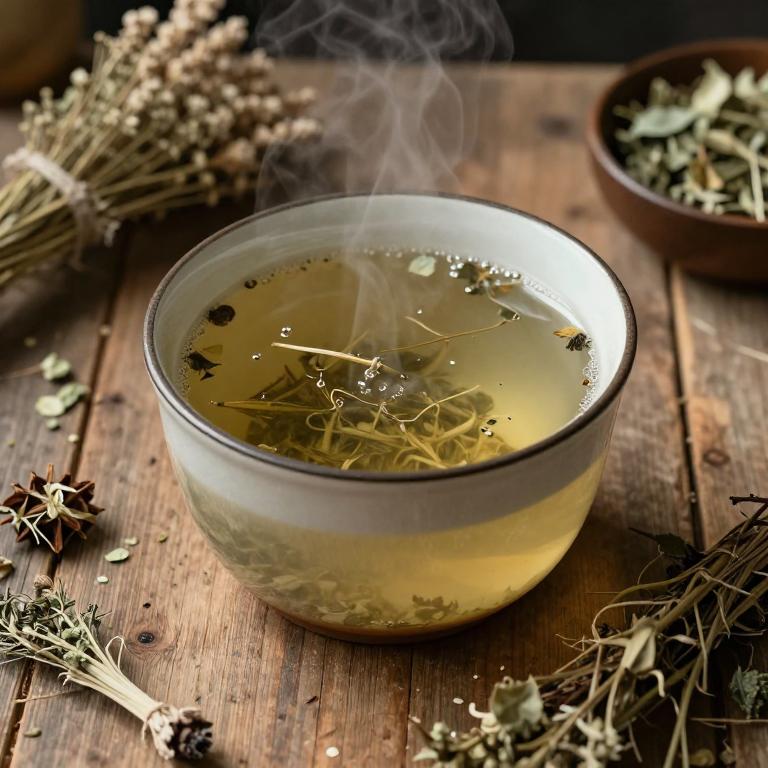
Rhodiola rosea, also known as the "golden root," is an adaptogenic herb traditionally used to enhance physical and mental performance.
Herbal decoctions made from rhodiola rosea are believed to support cognitive function by reducing stress and fatigue, which can contribute to brain fog. Studies suggest that the active compounds in rhodiola, such as rosavins and salidrosides, may improve mental clarity and focus by modulating neurotransmitter activity. These decoctions are often prepared by simmering the dried roots in water for several hours to extract their beneficial properties.
As a natural remedy, rhodiola rosea decoctions are increasingly used to alleviate symptoms of brain fog, particularly in individuals experiencing chronic stress or fatigue.
4. Turmeric (Curcuma longa)

Curcuma longa, commonly known as turmeric, contains curcumin, a bioactive compound with potent anti-inflammatory and antioxidant properties.
Herbal decoctions made from Curcuma longa are often used in traditional medicine to support cognitive function and alleviate symptoms of brain fog. These decoctions may help reduce oxidative stress and inflammation in the brain, which are commonly associated with mental fatigue and impaired focus. However, the bioavailability of curcumin is low, so it is often combined with black pepper or fat to enhance absorption.
While preliminary studies suggest potential benefits, more research is needed to fully understand its efficacy and optimal dosing for brain fog relief.
5. Salvia (Salvia officinalis)

Salvia officinalis, commonly known as sage, has been traditionally used in herbal medicine for its potential cognitive benefits.
Recent studies suggest that sage herbal decoctions may help alleviate brain fog by enhancing mental clarity and improving memory function. The active compounds in sage, such as rosmarinic acid and flavonoids, are believed to support neurological health and reduce inflammation in the brain. Preparing a sage decoction involves steeping dried leaves in hot water for several minutes, making it a simple and accessible remedy.
While more research is needed, preliminary evidence indicates that sage may be a promising natural option for those experiencing cognitive fog.
6. Bacopa (Bacopa monnieri)
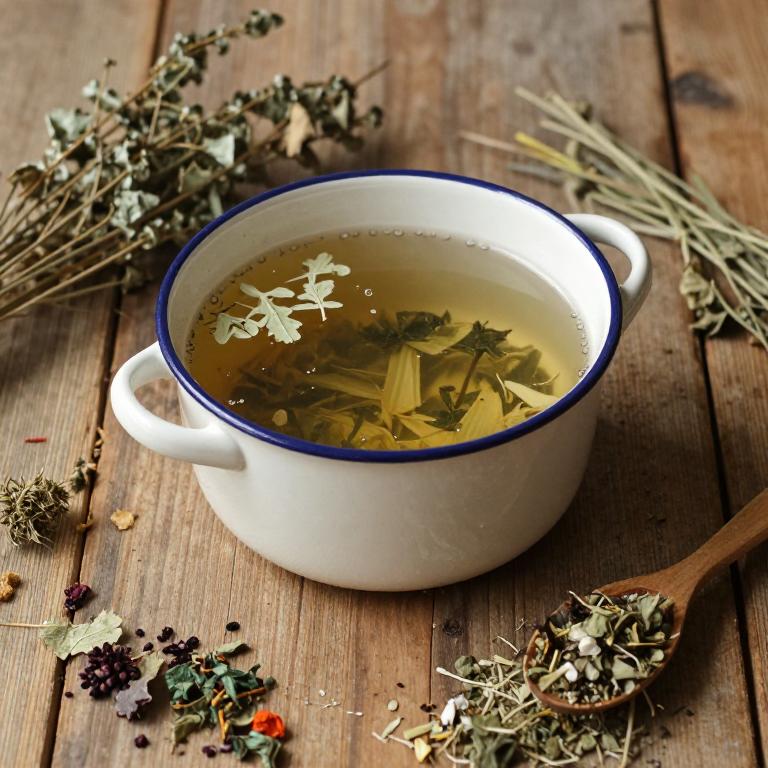
Bacopa monnieri, also known as Brahmi, is a traditional Ayurvedic herb commonly used to enhance cognitive function and reduce brain fog.
Herbal decoctions made from Bacopa monnieri leaves are believed to support memory, focus, and mental clarity by promoting the growth of nerve cells and improving neurotransmitter function. These decoctions are typically prepared by simmering the dried leaves in water for several hours, allowing the active compounds, such as bacosides, to be extracted. Research suggests that Bacopa monnieri may help alleviate symptoms of brain fog by reducing oxidative stress and inflammation in the brain.
However, it is important to consult a healthcare professional before using Bacopa monnieri, especially for individuals with existing medical conditions or those taking other medications.
7. Chaste tree (Vitex agnus-castus)

Vitex agnus-castus, commonly known as chasteberry, has been traditionally used in herbal medicine to support hormonal balance and may help alleviate symptoms of brain fog.
Herbal decoctions made from vitex agnus-castus are often prepared by simmering the dried berries in water, allowing the active compounds to be extracted for consumption. These decoctions are believed to influence the pituitary gland and regulate menstrual cycles, which can indirectly improve cognitive clarity in women experiencing hormonal fluctuations. Some studies suggest that vitex may enhance neurotransmitter activity, potentially supporting mental focus and reducing mental fatigue.
However, it is important to consult with a healthcare provider before using vitex agnus-castus, especially for individuals with existing health conditions or those taking medications.
8. Stinging nettle (Urtica dioica)

Urtica dioica, commonly known as stinging nettle, has been traditionally used in herbal medicine for its potential cognitive benefits.
When prepared as a decoction, stinging nettle is believed to support mental clarity and alleviate symptoms of brain fog by providing essential nutrients like iron, magnesium, and antioxidants. The decoction is typically made by simmering the dried leaves and stems in water for an extended period to extract its active compounds. Some studies suggest that the compounds in nettle may help reduce inflammation and improve blood flow, which can enhance cognitive function.
While more research is needed, many individuals report improved focus and mental alertness after incorporating stinging nettle decoctions into their wellness routine.
9. Ashwagandha (Withania somnifera)
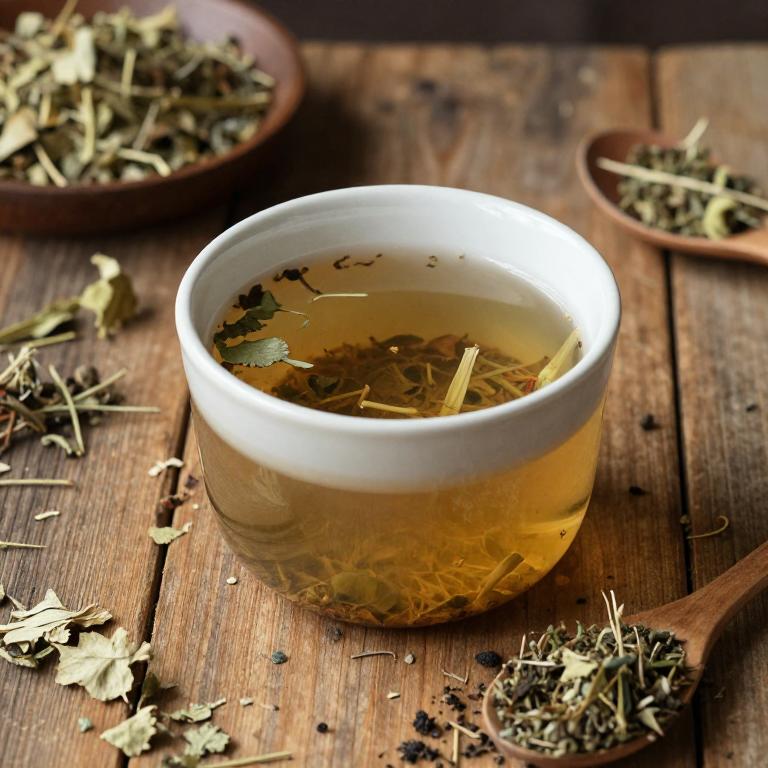
Withania somnifera, commonly known as ashwagandha, is an adaptogenic herb traditionally used in Ayurvedic medicine to support mental clarity and reduce stress.
Herbal decoctions made from its roots are believed to enhance cognitive function and alleviate symptoms of brain fog by modulating stress hormones like cortisol. These decoctions contain bioactive compounds such as withanolides, which may improve neural function and reduce inflammation in the brain. Studies suggest that ashwagandha can improve memory, focus, and overall mental performance, making it a potential natural remedy for brain fog.
However, it is important to consult a healthcare professional before using ashwagandha, especially for individuals with existing medical conditions or those taking medications.
10. Echinacea (Echinacea purpurea)

Echinacea purpurea, commonly known as purple coneflower, is a traditional herbal remedy that has been used for centuries to support immune function.
While it is widely recognized for its potential to alleviate cold and flu symptoms, recent research suggests it may also have benefits for cognitive health. Some studies indicate that echinacea extracts could help reduce brain fog by improving mental clarity and reducing inflammation in the brain. Herbal decoctions made from echinacea purpurea are often prepared by simmering the dried roots and flowers in water, allowing the active compounds to be extracted.
However, more clinical trials are needed to fully understand its efficacy and safety for addressing brain fog in different populations.